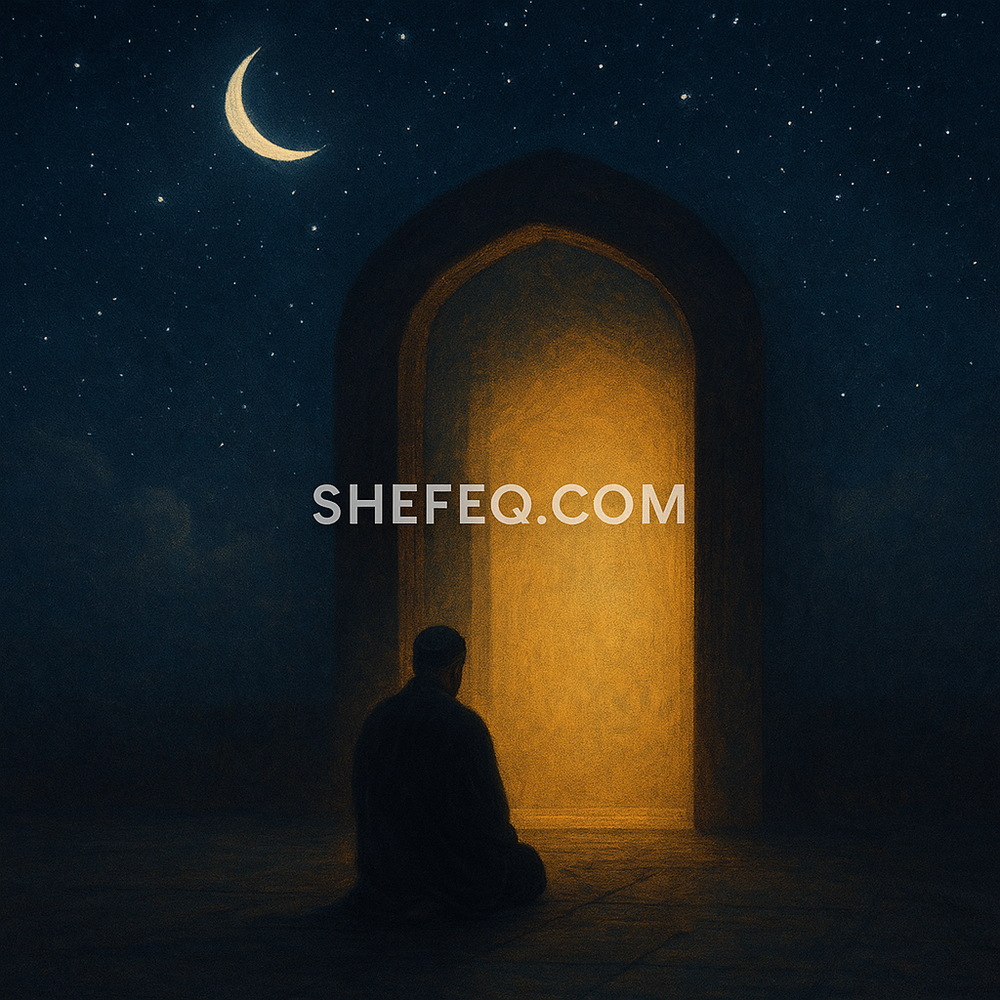I. INTRODUCTION – Doors Opening in the Silence
Human life is not made up solely of sunny mornings. There are moments born in the depths of the night. Some nights are not just silence – they turn into a whisper within the soul. Everything becomes still, yet the heart begins to speak. These are the moments that, in Islam, are remembered as “blessed nights.”
Blessed nights are moments when the boundaries of time and space between a person and the Creator become delicate, when veils are lifted and hearts are softened. These nights are not merely dates marked on a calendar. They are divine opportunities granted by Allah to His servants. It is as if the gates of heaven open on these nights, prayers are heard more swiftly, and the hands of the heart reach closer.
II. THE MEANING OF BLESSED NIGHTS IN ISLAM AND QURANIC VERSES
In Islam, certain times are considered blessed and sacred. Among them, nights hold a special place. The Qur’an and Hadith repeatedly emphasize the value of night worship:
“And in part of the night, keep awake by prayer, an additional prayer for you; it may be that your Lord will raise you to a praised station.”
(Surah Al-Isra, 79)
This verse shows that night worship is not only an action but also a means of spiritual elevation.
The key blessed nights in the Islamic calendar include:
-
Laylat al-Qadr (Night of Power) – better than a thousand months (Qadr, 97:3).
-
Isra and Mi’raj Night – the miraculous night journey and ascension of the Prophet (peace be upon him).
-
Shab-e-Barat – the night of forgiveness and the decree of sustenance.
-
Mawlid Night – the birth night of the Prophet (peace be upon him).
-
Ashura Night – the sacred night commemorating the events of Karbala.
These nights serve as a bridge between the servant and Allah, moments of spiritual awakening both individually and collectively.
III. THE ROLE OF BLESSED NIGHTS IN OUR HISTORY AND CULTURE
In Azerbaijan and across Muslim cultures, blessed nights have been not only a religious ritual but also a social event.
In the past, villages prepared for these nights in special ways:
-
Homes were cleaned, and guest rooms arranged neatly.
-
Special foods such as halva, pilaf, and sweets were prepared.
-
Neighbors visited one another, and reconciliations took place between those in conflict.
Blessed nights were remembered not only for worship but also for fostering a culture of unity. Today, the pace of city life and the distractions of technology have weakened these traditions, yet their spiritual value remains.
IV. OPENING THE DOORS OF THE SOUL – SPIRITUAL DEPTH
The concept of a “blessed night” is not merely a measure of time – it is a state of being.
Its features include:
-
Emotional awakening: heightened feelings of repentance, love, and hope.
-
Clarity of mind: the fading of worldly distractions and the remembrance of purpose.
-
Spiritual closeness: the feeling that there is no distance between oneself and Allah.
Sufis call this the “opening of the subtle door” – the moment when the heart, remembrance, and prayer unite.
V. SOCIAL AND COMMUNITY IMPACT – NIGHTS THAT STRENGTHEN UNITY
Blessed nights are not only for personal worship but also for strengthening social bonds.
Historical examples include:
-
In the Ottoman Empire, on Laylat al-Qadr, mosques would be illuminated with lights strung between minarets (“mahya” tradition).
-
On Shab-e-Barat, charity feasts for the poor were arranged.
-
Sharing sweets and food among neighbors was a common custom.
These traditions convey one message: a blessed night is not only about worship but also about sharing.
VI. PSYCHOLOGICAL AND EMOTIONAL ASPECTS
Science confirms that during certain moments, deep contemplation, prayer, and meditation increase the production of calming neurotransmitters in the brain.
-
Stress decreases, and the heartbeat slows down.
-
Hope and motivation increase.
-
A sense of belonging forms – the thought that “I am not alone.”
Thus, blessed nights can also act as a form of psychological therapy.
VII. WAYS TO MAKE THE MOST OF BLESSED NIGHTS
-
Create a moment of silence and solitude – step away from social media.
-
Read the Qur’an and reflect on its tafsir.
-
Repent for past sins.
-
Give charity and bring joy to those in need.
-
End the night with prayer and begin the new day with intention.
VIII. CONCLUSION – THE ILLUMINATION OF THE SOUL
Blessed nights remind us that life is not only about the material side. Doors open – but these are not the doors of a house, they are the doors of the soul. Inside each person is a room that may remain closed for years. Blessed nights are a divine opportunity to open that room.
Question and Reflection:
In your opinion, how do the prayers and acts of worship performed during blessed nights affect our daily lives? Have you ever experienced a special moment on such a night?

